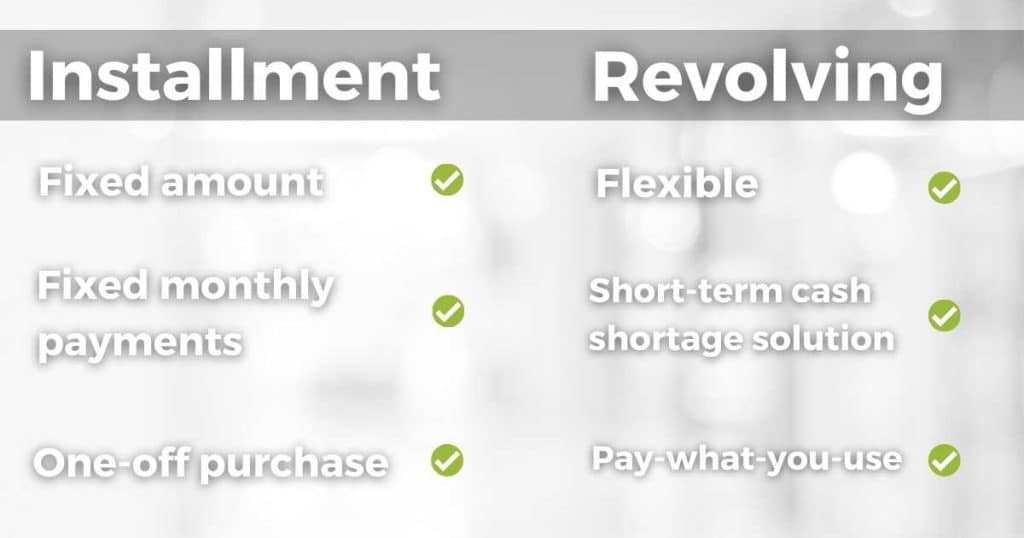Are Small Business Loans Installment or Revolving?
If you’re thinking about taking out a small business loan to grow your business or buy necessary supplies, you may have heard of the terms installment and revolving.
But what do these actually mean? And is a small business loan installment or revolving?
Well, the answer isn’t as clear-cut as you may think!
Small business loans can be installment or revolving, depending on the terms of the agreement and loan type.
Installment vs Revolving Small Business Loans

Installment loans consist of borrowing a specific amount of money and then repaying the lender in fixed monthly installments over a set and prearranged period.
Small businesses tend to use this type of loan for bigger purchases or investments (real estate, equipment, etc.)
Usually, the repayments will consist of an interest portion plus the original purchase price, and you’ll need to apply for a new loan if you require extra funds.
This type of loan is also sometimes called a Business Term Loan.
On the other hand, revolving credit is another small business loan type that’s much more flexible than the former.
Revolving credit works in a similar way to credit cards. You’re given a certain credit limit, and you can withdraw funds as often as you like up to the approval limit.
You make regular payments based on the amount used (instead of the total limit) based on the current balance, interest, and other fees.
If you’re a small business requiring ongoing working capital or have fluctuating cash flow needs, a revolving loan type could be what you’ve been looking for!
Installment vs Revolving Loans: Which Is Better For You?

If you have a specific loan amount in mind and need the money upfront to buy a one-time purchase for your small business, an installment loan is the way to go.
For big-ticket items or long-term financing needs, installment loans give you more time for repayments than revolving credit.
This can result in lower monthly payments, but the total interest may be higher.
Another advantage of installment loans is that they provide consistency for budgeting purposes, with fixed monthly payments.
On the other hand, revolving credit limits are typically lower than the maximum amount that installment loans offer.
Therefore, for small businesses, this loan type is the best choice for handling short-term cash shortages (or unexpected expenses) for small businesses.
Think of it like an emergency fund for businesses, with interest paid only on the funds used.
For businesses with fluctuating cash flow or, for example, seasonal businesses (with inconsistent revenue), a revolving credit loan is your best friend.
Revolving credit provides flexibility if you’re unsure about the exact loan amount you need.

Read more: 5 Xero Accounting Alternatives For Small Businesses.
Stews Final Thoughts
Small business loans can significantly boost a company’s financial position.
And whether you take out an installment or revolving credit loan type will depend on your business type, financial situation, and what you need the loan for.
You should consider how each loan works before applying for any business type to determine the best one for you.
So, with that said, I hope you can now confidently identify whether an installment or revolving loan type is best for your small business!

